
Hasselt: Belgium's Hidden Gem of Charm and Culture
Nestled in the heart of Belgium, Hasselt is a delightful fusion of historical charm and modern vibrance. Known as the 'Capital of Taste,' this city boasts an array of culinary delights, from artisanal chocolates to authentic Belgian waffles. Meander through its picturesque streets, where you'll find an eclectic mix of boutiques, cafes, and historical landmarks. One must-visit is the Japanese Garden, a serene oasis that offers a tranquil escape amidst the city's hustle and bustle. Hasselt is also famed for its rich cultural heritage. The Fashion Museum, or 'Modemuseum,' is a testament to the city's stylish past and present, showcasing an impressive collection of garments and fashion history. For a deeper dive into local history, the National Jenever Museum offers an insightful journey through the world of Belgium's beloved gin-like spirit, complete with tastings. Throughout the year, Hasselt hosts a variety of festivals and events that cater to all interests. From the lively Pukkelpop music festival to the enchanting Winterland Christmas market, there's always something happening to captivate visitors. With its warm hospitality, vibrant cultural scene, and delectable cuisine, Hasselt is a city that promises an unforgettable experience for every traveler.
Local tips in Hasselt
- Visit the Japanese Garden in spring for the cherry blossoms.
- Try the local jenever at the National Jenever Museum.
- Explore the city by bike; Hasselt is very bike-friendly.
- Attend the Pukkelpop festival in August if you love music.
- Check out the Winterland Christmas market for festive treats and gifts.
Hasselt: Belgium's Hidden Gem of Charm and Culture
Nestled in the heart of Belgium, Hasselt is a delightful fusion of historical charm and modern vibrance. Known as the 'Capital of Taste,' this city boasts an array of culinary delights, from artisanal chocolates to authentic Belgian waffles. Meander through its picturesque streets, where you'll find an eclectic mix of boutiques, cafes, and historical landmarks. One must-visit is the Japanese Garden, a serene oasis that offers a tranquil escape amidst the city's hustle and bustle. Hasselt is also famed for its rich cultural heritage. The Fashion Museum, or 'Modemuseum,' is a testament to the city's stylish past and present, showcasing an impressive collection of garments and fashion history. For a deeper dive into local history, the National Jenever Museum offers an insightful journey through the world of Belgium's beloved gin-like spirit, complete with tastings. Throughout the year, Hasselt hosts a variety of festivals and events that cater to all interests. From the lively Pukkelpop music festival to the enchanting Winterland Christmas market, there's always something happening to captivate visitors. With its warm hospitality, vibrant cultural scene, and delectable cuisine, Hasselt is a city that promises an unforgettable experience for every traveler.
When is the best time to go to Hasselt?
Iconic landmarks you can’t miss
Bokrijk Open Air Museum
Explore the rich cultural heritage of Belgium at Bokrijk Open Air Museum, an immersive experience surrounded by nature and history.
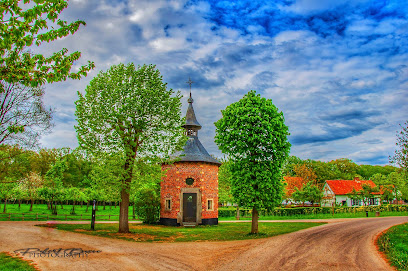
Japanese Garden
Discover the tranquility of Hasselt's Japanese Garden, a serene park blending natural beauty with authentic Japanese culture, perfect for relaxation and exploration.
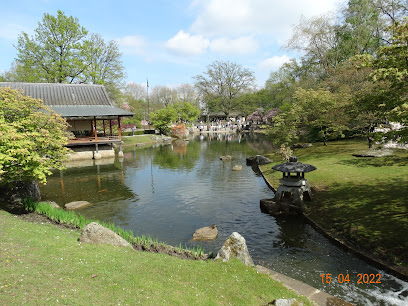
Herkenrode Abbey
Explore the serene beauty of Herkenrode Abbey, a historic gem near Hasselt, where nature meets culture and tranquility reigns.
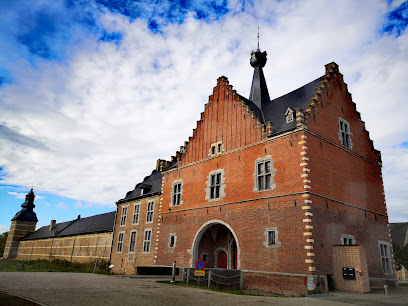
Cycling through water - Bokrijk
Experience the unique adventure of cycling through shallow waters at Bokrijk - a family-friendly park in Genk, Belgium with stunning natural beauty.
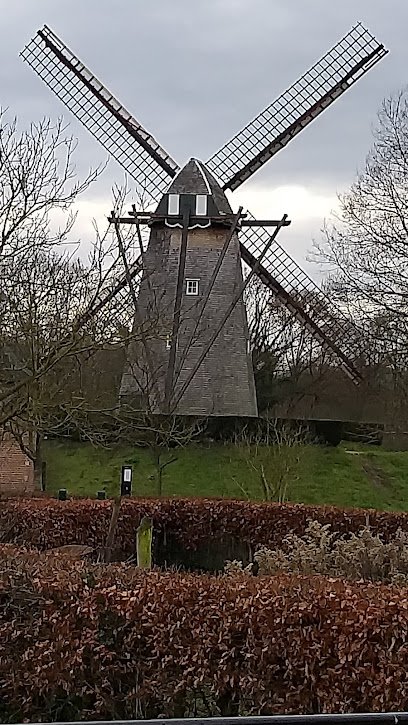
Quartier Bleu
Explore Quartier Bleu, a dynamic shopping mall in Hasselt, blending retail therapy with culinary delights and local culture.
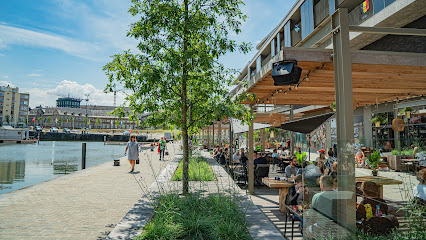
Radisson Blu Hotel, Hasselt
Experience the perfect blend of luxury and local charm at Radisson Blu Hotel in Hasselt, your ideal base for exploring this vibrant Belgian city.
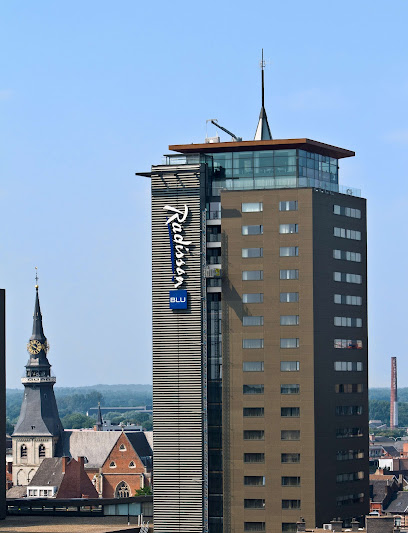
Gin Museum Hasselt
Explore the rich heritage and craftsmanship of gin at the Gin Museum Hasselt, a unique attraction for spirit enthusiasts and curious travelers.
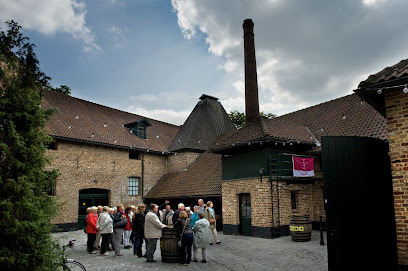
Stadspark Hasselt
Explore Stadspark Hasselt – a lush urban oasis perfect for relaxation, photography, and cultural events in the heart of Belgium.
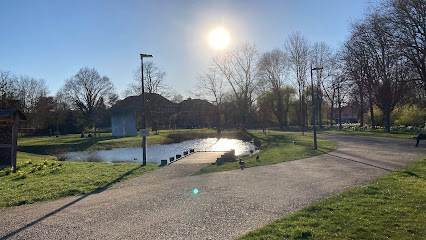
Bon’Air Rooftop Bar
Discover the stunning views and vibrant atmosphere at Bon’Air Rooftop Bar in Hasselt, where every cocktail is a masterpiece.
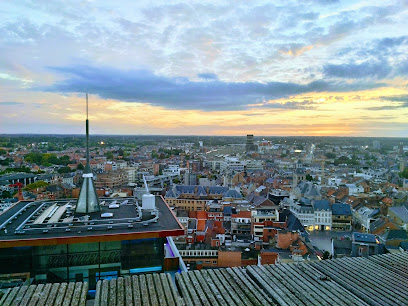
Domein Kiewit
Explore Domein Kiewit, a serene park in Hasselt, perfect for family fun with playgrounds, a children's farm, and picturesque walking paths.
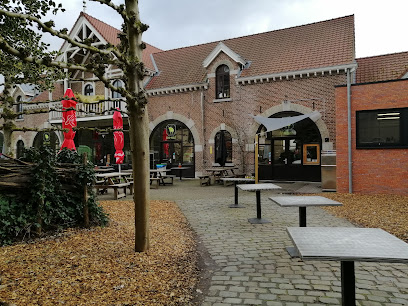
Art Museum Z33
Experience contemporary artistry and cultural innovation at Art Museum Z33 in Hasselt, Belgium - your gateway to modern artistic expressions.
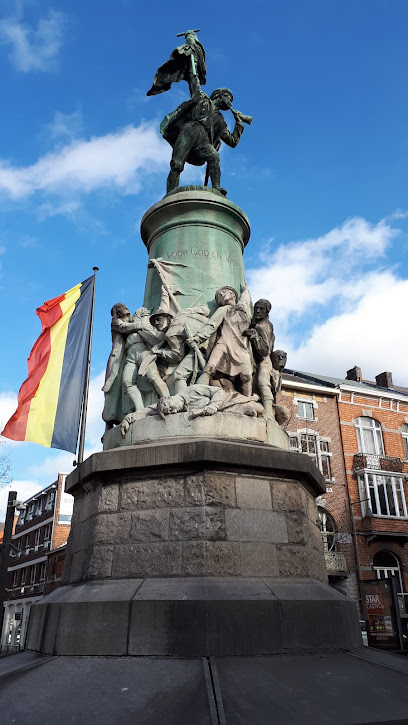
Cathedral St. Quintinus
Explore the stunning Cathedral St. Quintinus in Hasselt, a Gothic treasure showcasing remarkable architecture and rich history in Belgium.
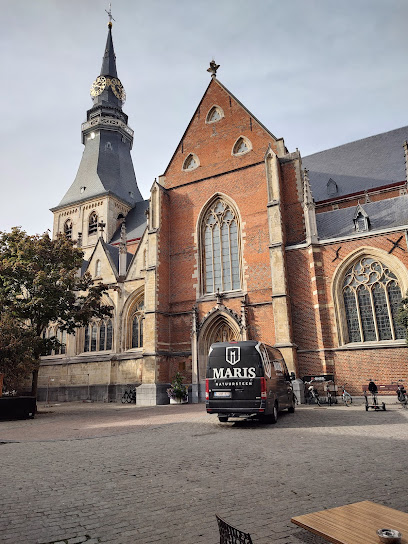
B&B HOTEL Hasselt
Experience modern comfort at B&B HOTEL Hasselt, your perfect base for exploring the vibrant city and its charming attractions.

Limburg Lavendel
Explore the enchanting lavender fields of Limburg Lavendel, a serene park in Hasselt, Belgium, perfect for relaxation and natural beauty.
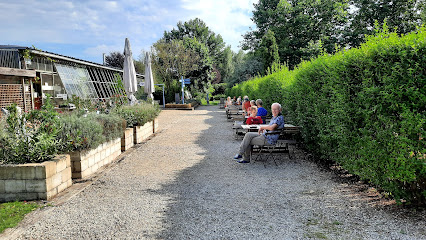
Het Stadsmus
Explore the vibrant history of Hasselt at Het Stadsmus, a local history museum that showcases the city's rich heritage through engaging exhibits and interactive experiences.
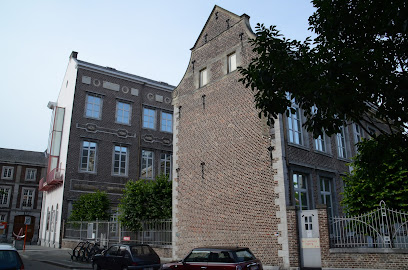
Unmissable attractions to see
Book Store Dominicanen
Discover literary treasures within the breathtaking architecture of a 13th-century Dominican church in Maastricht.
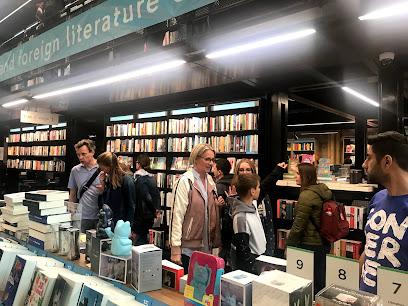
Parc Boverie
Experience the beautiful Parc Boverie in Liège, a perfect blend of nature and culture with stunning landscapes and a renowned art museum.
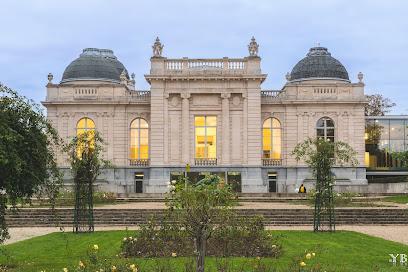
Bokrijk Open Air Museum
Explore the rich heritage and scenic beauty of Bokrijk Open Air Museum in Genk, Belgium, where history and nature intertwine.
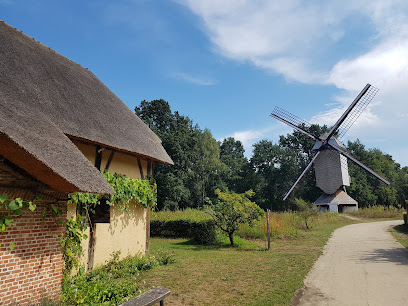
Gemeentegrot
Unearth the wonders of Gemeentegrot in Valkenburg, a captivating cave system filled with stunning formations and rich historical tales.
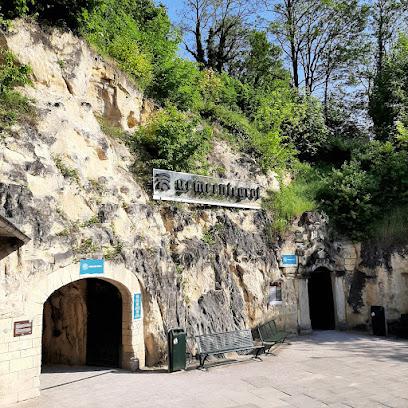
Thermae 2000
Experience the ultimate relaxation at Thermae 2000, a luxury wellness center in Valkenburg, offering thermal baths, massages, and stunning views.

Botanical Garden
Explore the lush landscapes and rich history of Leuven's Botanical Garden, a tranquil haven for nature enthusiasts and city explorers.
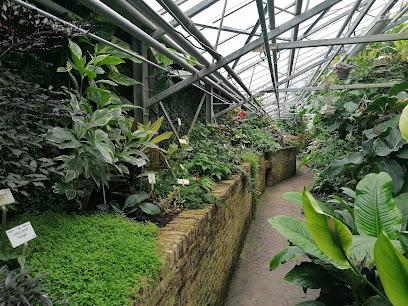
Plopsa Indoor Hasselt
Experience a magical world of indoor fun with your favorite Studio 100 characters at Plopsa Indoor Hasselt, a perfect family destination.
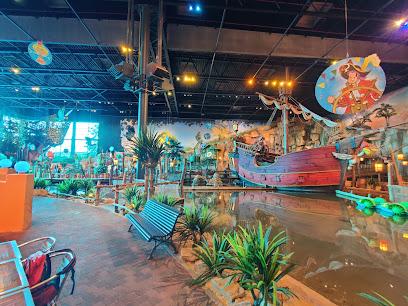
Japanese Garden
Explore the enchanting Japanese Garden in Hasselt, a tranquil escape that beautifully blends nature, art, and culture in Belgium.
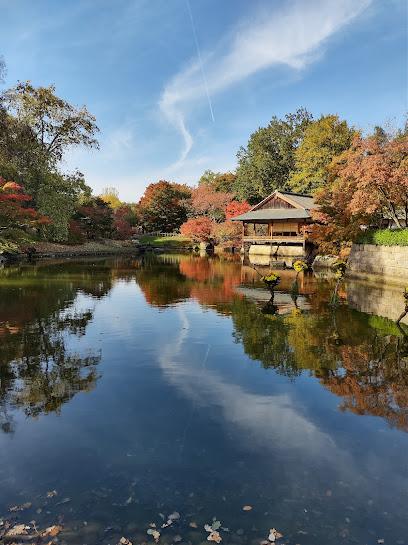
Groot Begijnhof Leuven
Explore the historic Groot Begijnhof in Leuven, a UNESCO World Heritage site with charming streets, traditional architecture, and a tranquil atmosphere.
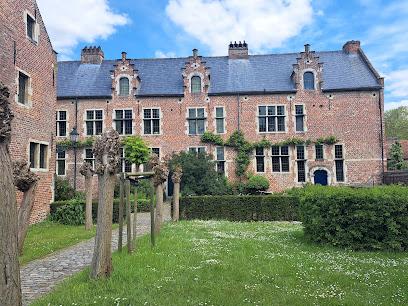
Fort Eben-Emael
Explore a massive WWII fortress in Belgium, captured in the first-ever gliderborne attack, and discover its underground tunnels and artillery positions.
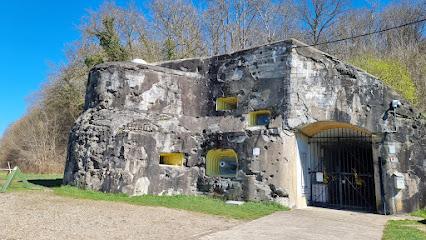
Ladeuzeplein
Discover Leuven's largest square: a vibrant hub of history, culture, and modern art, anchored by the iconic University Library and Totem sculpture.

Aquarium-Museum of Liège
Discover the vibrant underwater world and diverse zoological wonders at the Aquarium-Museum of Liège, an educational gem for all ages.

Basilica of Our Lady
Discover the Basilica of Our Lady in Maastricht, a stunning Romanesque church rich in history and architectural beauty, a must-see for every traveler.
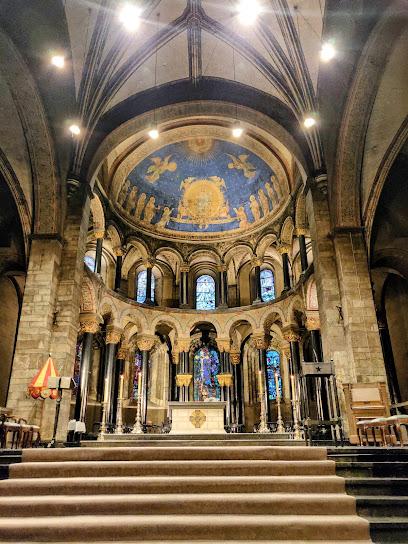
Herkenrode Abbey
Explore the historic Herkenrode Abbey in Hasselt, Belgium — a serene blend of nature, architecture, and rich cultural heritage.
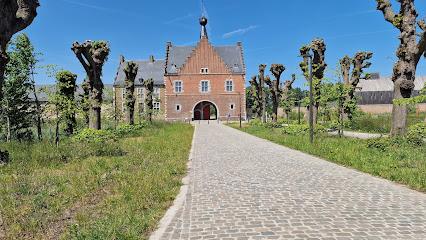
Bonnefanten museum
Explore a world where historical masterpieces meet cutting-edge contemporary art in Maastricht's iconic Bonnefanten Museum.
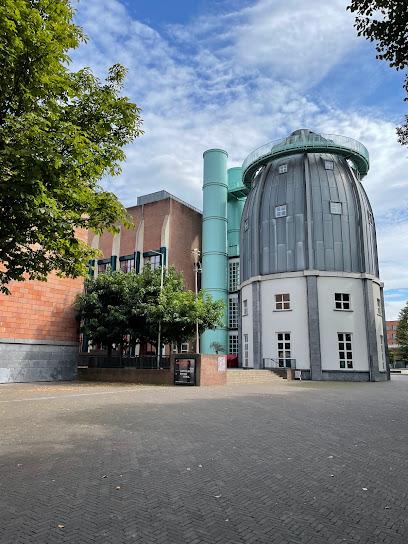
Essential places to dine
De Orangerie
Discover exquisite cuisine and enchanting outdoor dining at De Orangerie in Hasselt - a culinary gem not to be missed.
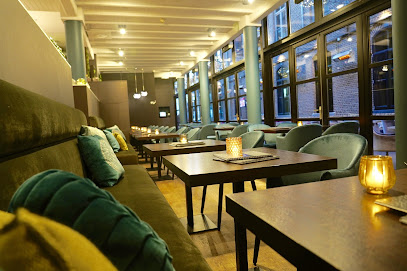
L’Aperi Vino
Experience authentic Italian tapas at L’Aperi Vino in Hasselt - where every bite tells a story.
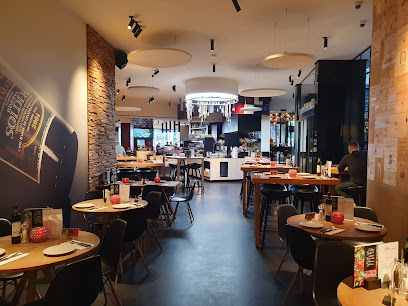
Maison Mathis
Discover authentic Belgian cuisine at Maison Mathis in Hasselt - where flavor meets hospitality in a charming setting.
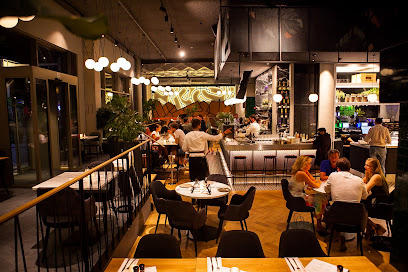
Hooghuis
Discover Hooghuis: A delightful brasserie in Hasselt offering exquisite local cuisine in a cozy setting perfect for tourists.
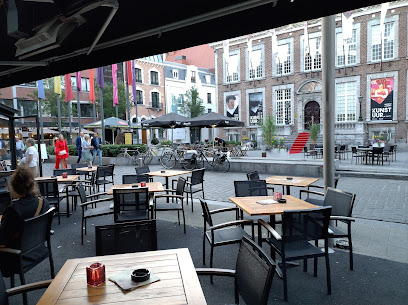
De Stroobander
Experience authentic Belgian flavors at De Stroobander in Hasselt - where culinary excellence meets warm hospitality.
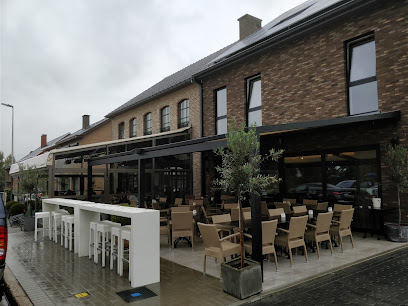
Tasty Bowl
Discover authentic Thai flavors at Tasty Bowl in Hasselt - where every dish tells a delicious story.
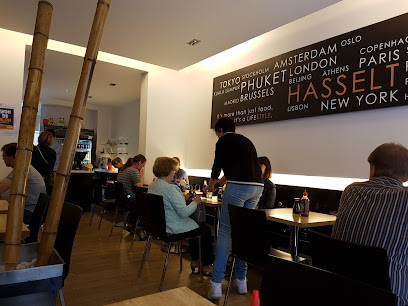
Smaaksalon
Experience authentic Belgian cuisine at Smaaksalon in Hasselt - where tradition meets taste in every dish.
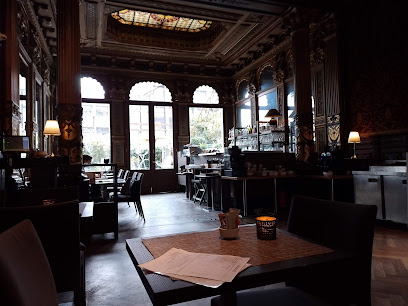
Het CORdAAT
Discover fine dining at Het CORdAAT in Hasselt – where seasonal ingredients meet culinary artistry in an elegant setting.
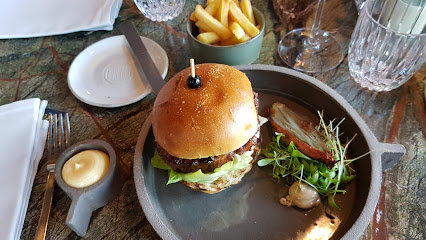
Westpunt
Experience the vibrant fusion of flavors at Westpunt, Hasselt's premier restaurant and bar offering exquisite local and international cuisine.
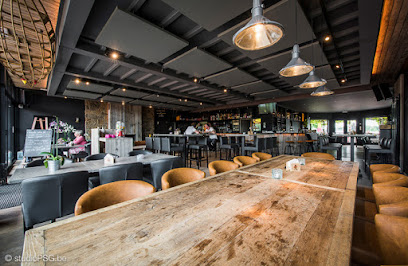
Café Latino
Experience vibrant Mexican flavors at Café Latino in Hasselt - where delicious food meets lively cocktails!
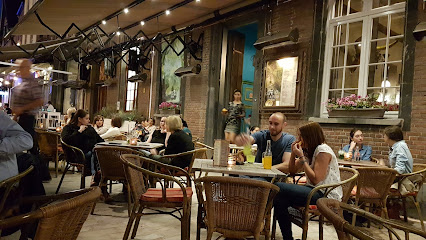
Nostalgia
Discover authentic Greek flavors at Nostalgia in Hasselt – where every meal is a celebration of Mediterranean culinary heritage.
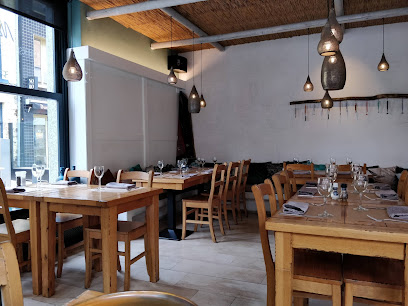
De Goei Goesting
Experience the heart of Belgian cuisine at De Goei Goesting in Hasselt—where every meal is a celebration of local flavors.
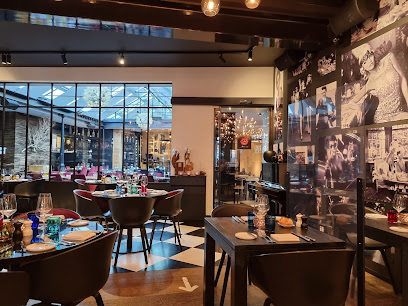
Brasserie De Vogelsanck
Experience the best of Belgian cuisine at Brasserie De Vogelsanck in Hasselt, where tradition meets innovation in every dish.
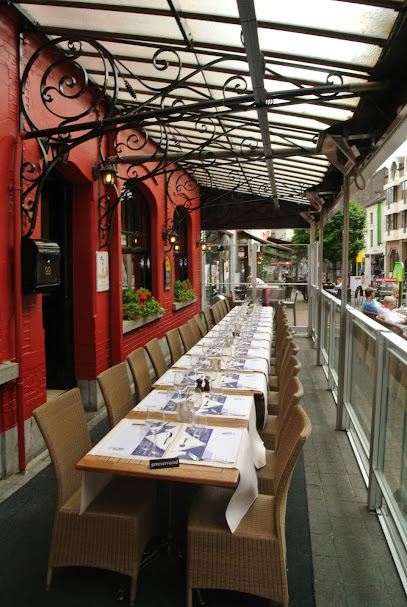
't Borrelhuis
Discover the rich flavors of Belgian cuisine at 't Borrelhuis in Hasselt - where local ingredients meet culinary passion.
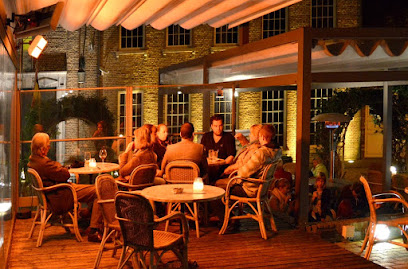
Botanique
Discover the vibrant culinary scene at Botanique in Hasselt—offering brunches, gourmet burgers, and creative cocktails in a stylish setting.
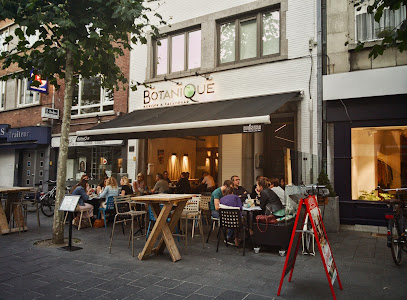
Markets, malls and hidden boutiques
Primark
Explore Primark in Hasselt for trendy clothing at unbeatable prices, perfect for fashion lovers on a budget!
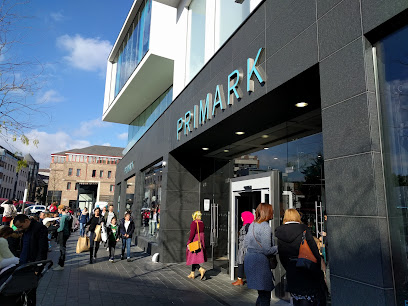
Galeria Inno
Experience the ultimate shopping destination at Galeria Inno in Hasselt, where style meets variety in a vibrant department store setting.
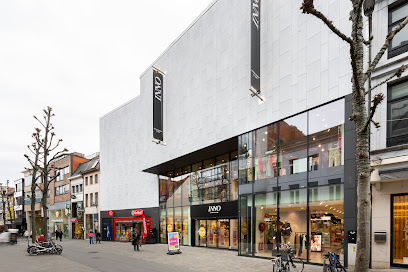
Quartier Bleu
Explore Quartier Bleu in Hasselt, where shopping meets culinary delights in a vibrant community atmosphere.
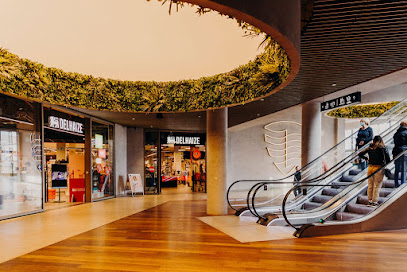
La Bottega
Explore La Bottega in Hasselt: A unique gift shop offering haute couture fashion, clothing, and exquisite footwear for every taste.
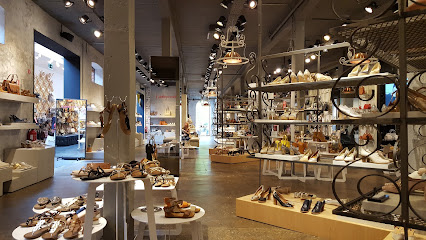
Zara Belgium
Discover fashionable clothing at Zara Belgium in Hasselt, where style meets affordability for tourists looking to refresh their wardrobe.
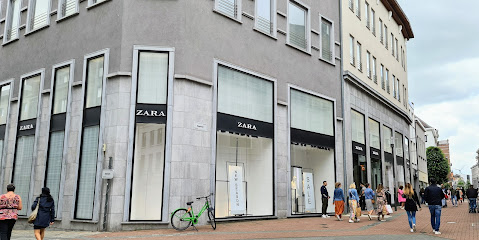
Action Hasselt
Explore unique gifts, DIY supplies, and home essentials at Action Hasselt - your go-to shopping destination in Belgium.
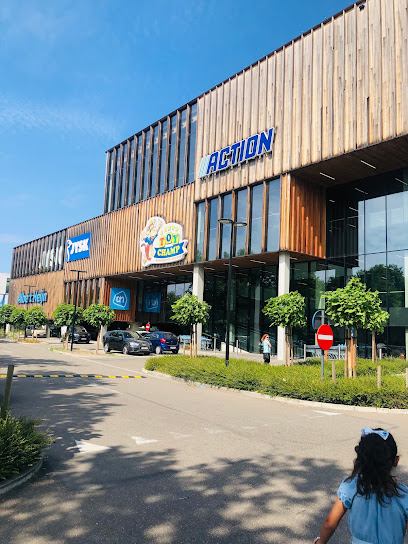
HEMA
Explore HEMA in Hasselt for an array of unique gifts, stylish apparel, and essentials that capture the essence of Belgian design.
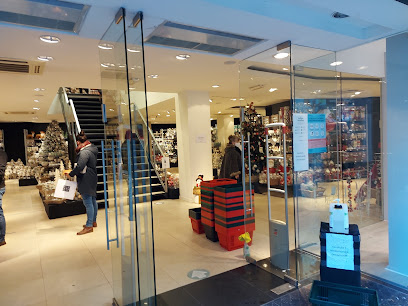
Bershka
Explore the vibrant fashion landscape of Hasselt at Bershka, where trendy footwear and stylish apparel come together for the perfect shopping experience.
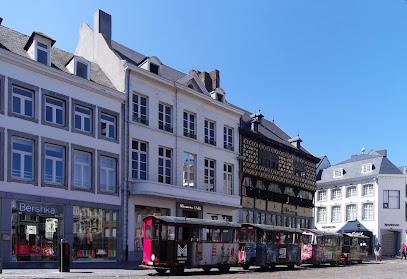
Flying Tiger Copenhagen
Explore the vibrant gift shop, Flying Tiger Copenhagen, for unique souvenirs, home goods, and delightful toys in Hasselt.
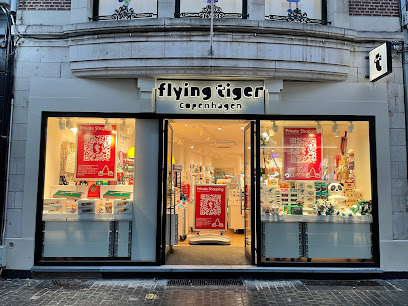
Dille & Kamille - Hasselt
Explore Dille & Kamille in Hasselt for unique gifts, home goods, and delightful treats that capture the essence of Belgian craftsmanship and charm.
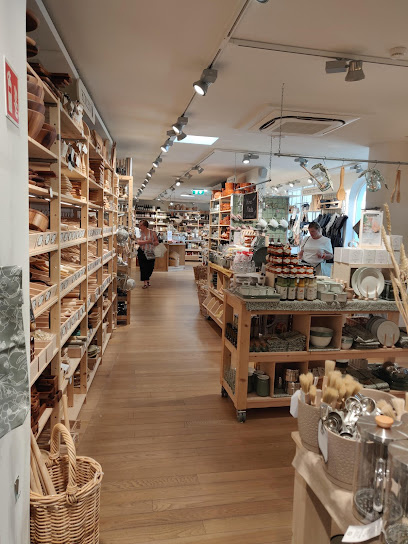
Nespresso Boutique Hasselt
Experience the luxury of coffee at Nespresso Boutique Hasselt, where taste meets sophistication in every cup brewed.
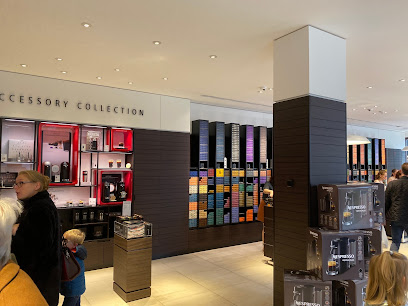
Veritas - Hasselt
Explore Veritas in Hasselt for an inspiring collection of fashion accessories, children's clothing, and craft supplies, perfect for every creative traveler.
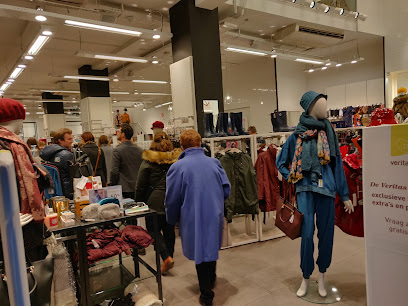
CASA Hasselt
Explore CASA Hasselt, your go-to destination for unique gifts, stylish home decor, and quality kitchen supplies in the heart of Belgium.
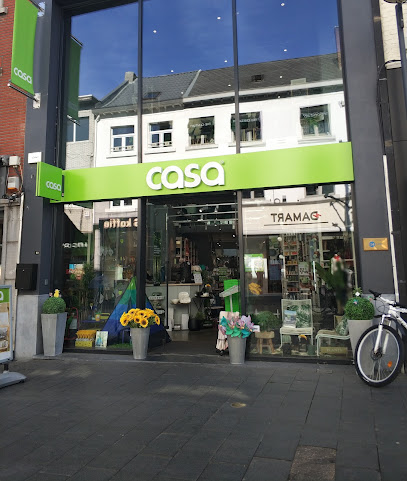
Oil & Vinegar
Explore the gourmet world of Oil & Vinegar in Hasselt, where exquisite oils, vinegars, and spices await every food lover and gift seeker.
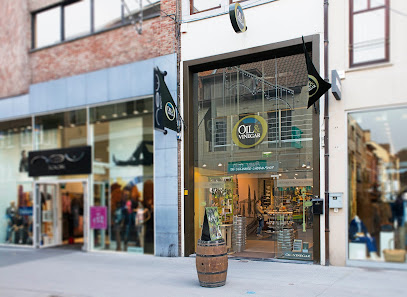
Paplou
Paplou in Hasselt: Your destination for unique fashion and stylish finds in Belgium's charming city.
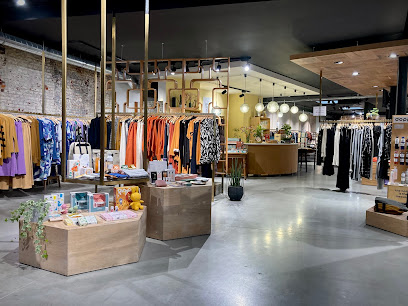
Essential bars & hidden hideouts
The Irish Times Pub
Discover the essence of Ireland at The Irish Times Pub in Hasselt, a hub for authentic cuisine, fine drinks, and lively entertainment.
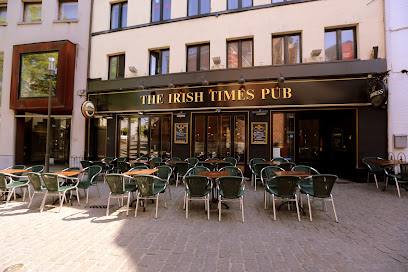
Bon’Air Rooftop Bar
Experience breathtaking views and exquisite cocktails at Bon’Air Rooftop Bar, a premier lounge in the heart of Hasselt.
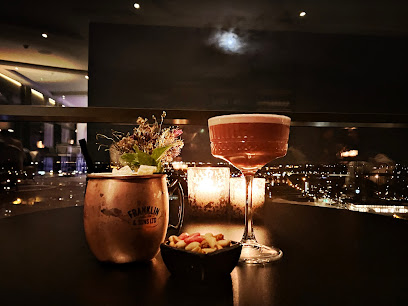
El Sueño
Discover a vibrant tapas bar in Hasselt offering exquisite small plates and handcrafted cocktails in a warm and welcoming atmosphere.
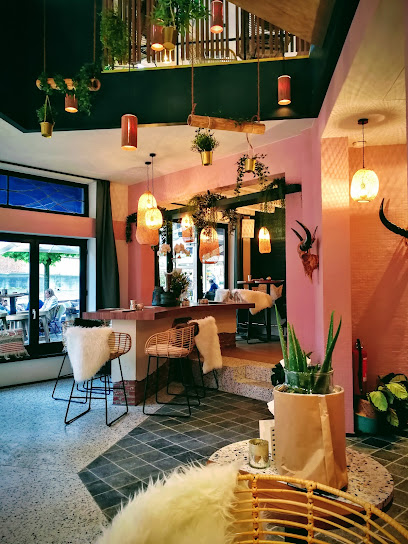
Cambrinus
Discover the vibrant atmosphere and extensive beer selection at Cambrinus, Hasselt's beloved bar and pub offering a taste of local culture.
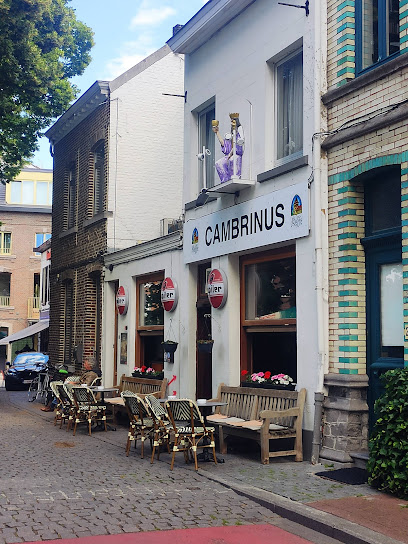
Koestal
Discover the vibrant nightlife at Koestal, a cozy bar in Hasselt serving delicious drinks and a welcoming atmosphere for all.
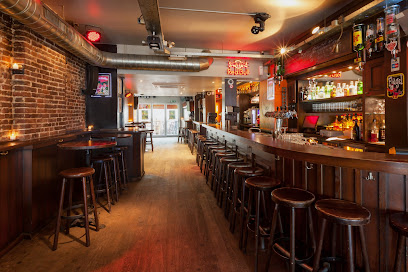
Bierpunt Hasselt
Discover the vibrant world of craft beer at Bierpunt Hasselt, where every sip tells a story in a cozy and inviting atmosphere.
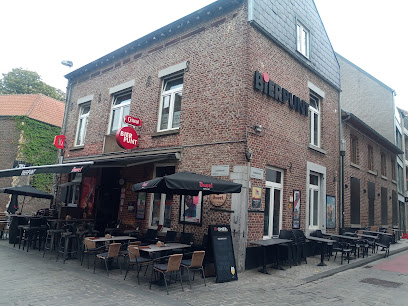
Corda Bar
Experience the vibrant atmosphere of Corda Bar in Hasselt, where local culture meets a diverse selection of drinks and delicious snacks.
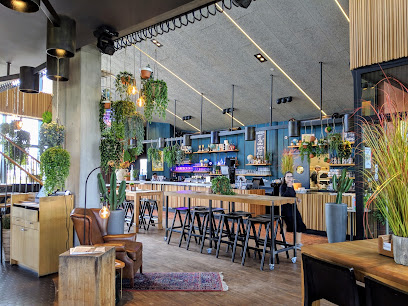
The Hedgehog
Discover The Hedgehog in Hasselt, a cozy bar offering a wide selection of drinks and a vibrant atmosphere perfect for unwinding after a day of exploration.
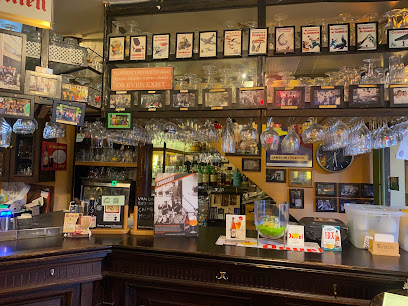
'T Hemelrijk
Discover 'T Hemelrijk in Hasselt: A vibrant bar offering local brews and a cozy atmosphere in the heart of the city.
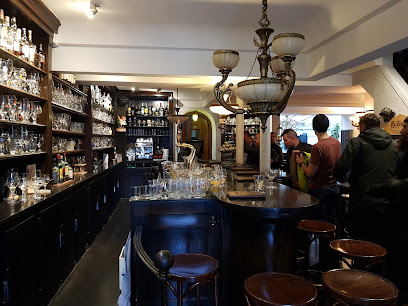
Koks&Tales
Koks&Tales in Hasselt offers a unique cocktail experience with innovative drinks and a vibrant atmosphere perfect for a night out.
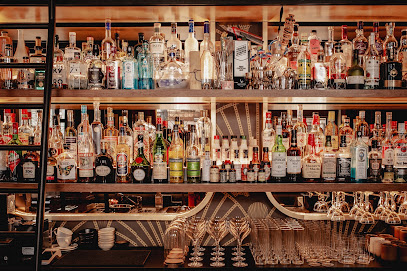
The Barrel - Hasselt
Experience the vibrant nightlife of Hasselt at The Barrel - a dynamic bar and nightclub for unforgettable evenings.
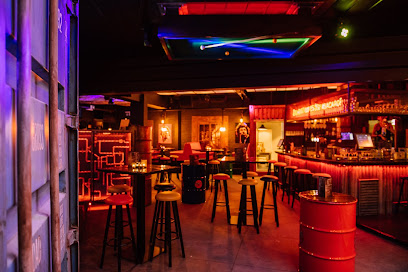
Dito
Experience the perfect blend of relaxation and sophistication at Dito, Hasselt's premier wine bar and store, offering an exquisite selection of wines.
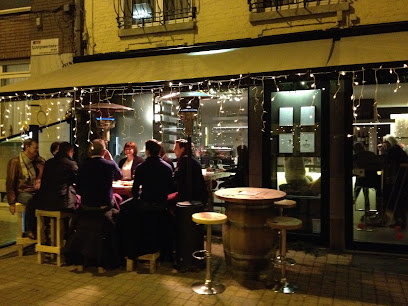
Mon Cafe
Discover the lively atmosphere and diverse drink selection at Mon Cafe in Hasselt, a perfect spot for relaxation and socializing.
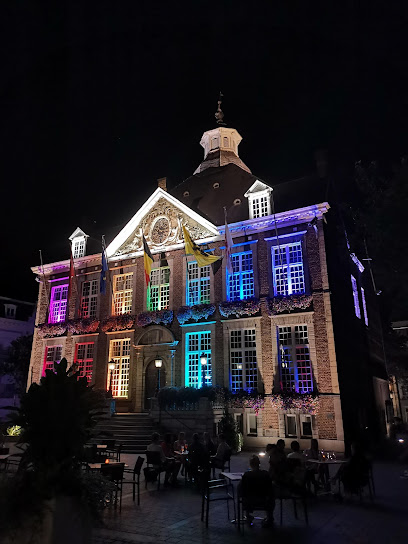
Boulebaar
Discover the vibrant atmosphere of Boulebaar, the perfect bar in Hasselt for locals and tourists to unwind with a diverse drink selection.
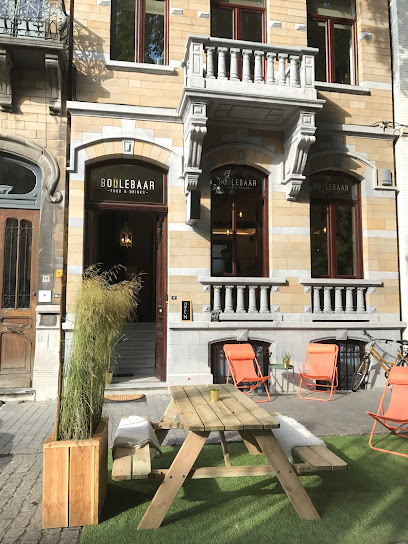
Local Phrases
-
- HelloHallo
[ha-loh] - GoodbyeTot ziens
[tot zeens] - YesJa
[ya] - NoNee
[nee] - Please/You're welcomeAlstublieft
[al-stu-bleeft] - Thank youDank u
[dank u] - Excuse me/SorrySorry
[sor-ree] - How are you?Hoe gaat het?
[hoo gaat het] - Fine. And you?Goed. En met jou?
[khoot. en met yow] - Do you speak English?Spreekt u Engels?
[spreekt u engels] - I don't understandIk begrijp het niet
[ik be-greyp het neet]
- HelloHallo
-
- I'd like to see the menu, pleaseIk zou graag de menukaart willen zien, alstublieft
[ik zou khraakh de me-nu-kart vil-len zeen al-stu-bleeft] - I don't eat meatIk eet geen vlees
[ik eet kheyn vleys] - Cheers!Proost!
[prohst] - I would like to pay, pleaseIk zou graag willen betalen, alstublieft
[ik zou khraakh vil-len buh-tahl-en al-stu-bleeft]
- I'd like to see the menu, pleaseIk zou graag de menukaart willen zien, alstublieft
-
- Help!Help!
[help] - Go away!Ga weg!
[ga wekh] - Call the Police!Bel de politie!
[bel de po-li-see] - Call a doctor!Bel een dokter!
[bel ayn dok-ter] - I'm lostIk ben verdwaald
[ik ben fer-dwahlt] - I'm illIk ben ziek
[ik ben ziek]
- Help!Help!
-
- I'd like to buy...Ik zou graag ... willen kopen
[ik zou khraakh vil-len koh-pen] - I'm just lookingIk ben gewoon aan het kijken
[ik ben khe-vohn ahn het kee-ken] - How much is it?Hoeveel kost het?
[hoo-veyl kost het] - That's too expensiveDat is te duur
[daht is tuh duhr] - Can you lower the price?Kunt u de prijs verlagen?
[kunt u de preys ver-lah-ghen]
- I'd like to buy...Ik zou graag ... willen kopen
-
- What time is it?Hoe laat is het?
[hoo laht is het] - It's one o'clockHet is een uur
[het is ayn uhr] - Half past (10)Half elf
[hahlf elf] - MorningOchtend
[okh-tend] - AfternoonMiddag
[mid-dahkh] - EveningAvond
[ah-vohnt] - YesterdayGisteren
[gis-teh-ren] - TodayVandaag
[van-dahkh] - TomorrowMorgen
[mor-khen] - 1Een
[ayn] - 2Twee
[tvee] - 3Drie
[dree] - 4Vier
[veer] - 5Vijf
[vayf] - 6Zes
[zehs] - 7Zeven
[zeh-ven] - 8Acht
[ah-kht] - 9Negen
[nay-khen] - 10Tien
[teen]
- What time is it?Hoe laat is het?
-
- Where's a/the...?Waar is een/de...?
[vahr is ayn/de] - What's the address?Wat is het adres?
[vaht is het ah-dres] - Can you show me (on the map)?Kunt u me (op de kaart) tonen?
[kunt u me (op de kaart) toh-nen] - When's the next (bus)?Wanneer is de volgende (bus)?
[vahn-er is de vol-gen-de (bus)] - A ticket (to ....)Een ticket (naar ....)
[ayn ticket (nar)]
- Where's a/the...?Waar is een/de...?
History of Hasselt
-
Hasselt's roots date back to the 7th century when it began as a small settlement. The name 'Hasselt' is derived from 'Hasaluth,' a combination of the words 'hasal' (hazel) and 'luth' (wood), indicating the area's rich natural resources. By the 13th century, Hasselt had grown into a significant trading town due to its strategic location along the Helbeek river, which facilitated commerce and communication.
-
In 1232, Count Arnold IV of Loon granted Hasselt its city charter, marking its official recognition as a city. This charter of liberties provided the citizens with specific rights and privileges, such as the right to hold markets and fairs, which further boosted its economic standing. The granting of the charter was a pivotal moment in Hasselt's history, laying the foundation for its development and prosperity.
-
Hasselt is home to the Saint Quentin's Cathedral, a stunning example of Gothic architecture. The cathedral houses the relics of Saint Quentin and Saint Ursula, which were brought to the city in the 13th century. These relics turned Hasselt into a pilgrimage site, drawing visitors from far and wide and contributing to the city's religious and cultural heritage.
-
Hasselt is renowned for its jenever, a traditional Belgian gin. The jenever industry in Hasselt flourished in the 19th century, establishing the city as a key player in the production of this beloved spirit. Distilleries like Stellingwerff-Theunissen and Smeets became household names, and the tradition continues today with the Jenever Museum, where visitors can learn about the history and production of jenever.
-
The Industrial Revolution brought significant changes to Hasselt in the 19th century. The construction of the Albert Canal in the 1930s further enhanced Hasselt's connectivity and industrial capabilities. The canal facilitated the transport of goods and raw materials, accelerating the city's industrial growth and modernizing its infrastructure.
-
World War II left an indelible mark on Hasselt, as it did on much of Europe. The city was occupied by German forces, and its residents endured hardships and resistance activities. The liberation of Hasselt in September 1944 by Allied forces was a momentous event, celebrated annually in the city with various commemorations and activities.
-
Today, Hasselt is known for its vibrant cultural scene. The city hosts numerous festivals, such as Pukkelpop, one of Europe's largest music festivals, and the Hasselt Carnival, a lively event that showcases the city's traditions and community spirit. Hasselt's blend of historical charm and modern amenities makes it a unique destination for visitors.
Hasselt Essentials
-
Hasselt is located in the Limburg province of Belgium. The nearest major airport is Brussels Airport (BRU), approximately 80 kilometers away. From Brussels Airport, you can take a direct train to Hasselt, which typically takes about 1.5 hours. Alternatively, you can rent a car from the airport and drive to Hasselt, which takes around an hour. Hasselt is also accessible by train from major Belgian cities like Antwerp, Ghent, and Bruges.
-
Hasselt has an excellent public transportation system, including buses operated by De Lijn. The city center is pedestrian-friendly, and many attractions are within walking distance. For longer trips, taxis and rental bikes are readily available. The 'Blue Bike' rental service offers convenient options for exploring the city and surrounding areas. Additionally, Hasselt offers free public bus service within the city, making it easy to get around.
-
The official currency in Belgium is the Euro (EUR). Credit and debit cards are widely accepted in hotels, restaurants, and shops. ATMs are available throughout Hasselt, providing easy access to cash. It's advisable to carry some cash for small purchases, especially in smaller establishments and markets.
-
Hasselt is generally a safe city for tourists. However, it is always wise to take standard precautions. Avoid walking alone at night in poorly lit areas and keep an eye on your belongings in crowded places. While Hasselt does not have specific high-crime areas targeting tourists, remaining vigilant is always recommended.
-
In case of emergency, dial 112 for immediate assistance. This number connects you to emergency services, including police, fire, and medical assistance. The local police station and several medical facilities, including Jessa Hospital, are available in Hasselt. It is recommended to have travel insurance that covers medical emergencies. For minor health issues, pharmacies are readily accessible throughout the city.
-
Fashion: Do dress smart-casual, especially when dining out. Avoid overly casual attire in fine dining establishments. Religion: Do respect local customs and traditions, especially in religious sites. Cover your shoulders and knees when entering churches. Public Transport: Do be courteous and offer your seat to elderly passengers. Don't eat or drink on public transport. Greetings: Do greet people with a handshake. A friendly smile and 'hello' (in Dutch: 'hallo') are appreciated. Eating & Drinking: Do try local specialties like 'Hasseltse Jenever' (a traditional Belgian gin) and 'speculaas' (spiced shortcrust biscuits). Don't leave large tips; service charges are usually included in the bill.
-
To experience Hasselt like a local, visit the weekly markets where you can buy fresh produce and local crafts. Engage with locals, as they are friendly and often willing to share insights about the city. Don't miss visiting the Japanese Garden, the largest of its kind in Europe, and the National Jenever Museum to learn about the local gin-making tradition. For a unique experience, take a stroll through the beautiful Kapermolen Park or explore the charming streets of the old city center.
Trending Landmark in Hasselt
Nearby Cities to Hasselt
-
Things To Do in Genk
-
Things To Do in Maastricht
-
Things To Do in Liege
-
Things To Do in Leuven
-
Things To Do in Aachen
-
Things To Do in Eindhoven
-
Things To Do in Louvain-la-Neuve
-
Things To Do in Spa
-
Things To Do in Mechelen
-
Things To Do in Namur
-
Things To Do in Durbuy
-
Things To Do in Brussels
-
Things To Do in Antwerp
-
Things To Do in Dinant
-
Things To Do in La Roche-en-Ardenne











